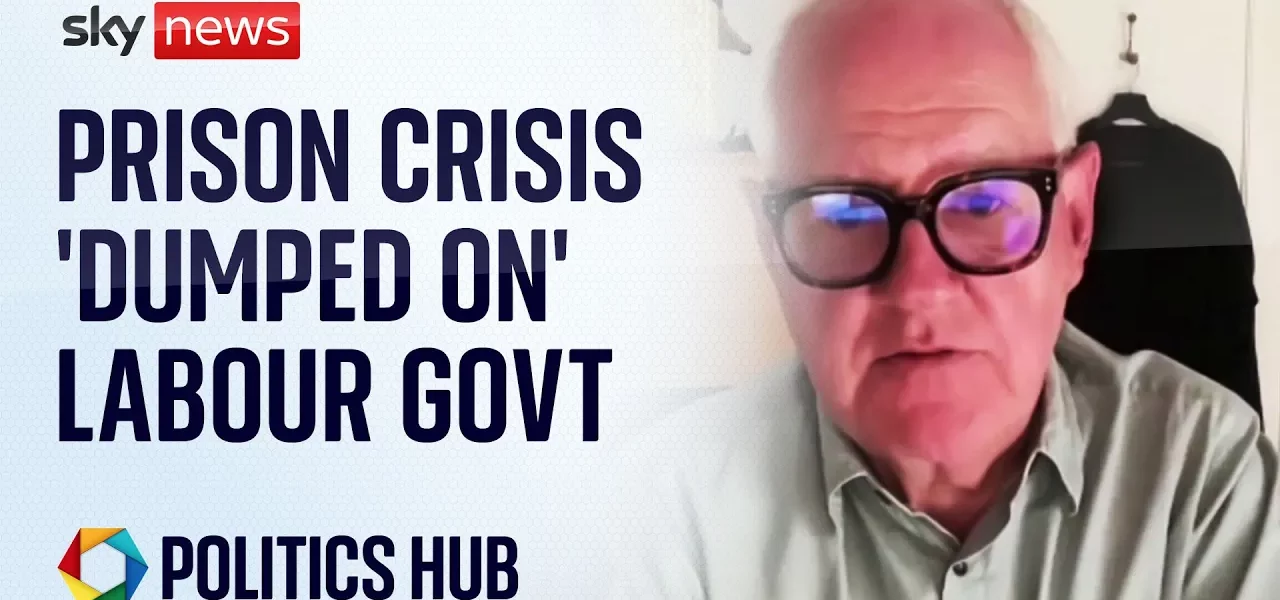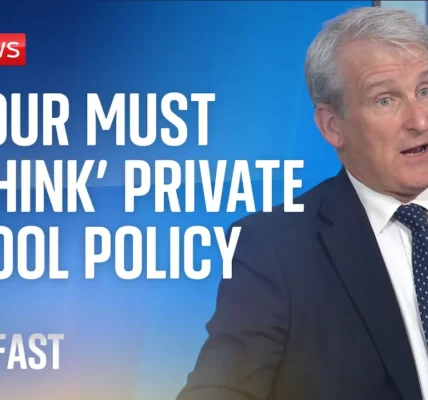Analyzing the UK Prison System: Failures and Future Reforms

This article explores the pressing issues surrounding the UK prison system, highlighting the catastrophic public policy failures and the potential reforms proposed by the new Labour government under Keir Starmer.
Introduction
The UK prison system is currently at a critical juncture, facing unprecedented challenges that have emerged from years of policy failures. The conversation surrounding public safety, rehabilitation, and the effectiveness of punitive measures versus rehabilitative approaches has never been more vital. In this article, we will delve into the insights provided by Lord McDonald, a former Director of Public Prosecutions, regarding Labour’s long-term plan and the current state of the criminal justice system.
Understanding the Current Crisis in the UK Prison System
Recent discussions have highlighted that the UK is experiencing a significant crisis within its prison system, which has been described as a “catastrophic failure of public policy.” This crisis has been building over many years and involves several interconnected factors:
- Increased sentencing lengths and harsher penalties.
- A rising prison population, now the largest in Western Europe.
- Insufficient prison infrastructure to accommodate the growing number of inmates.
- Political reluctance to address these issues for fear of electoral repercussions.
As a result of these factors, a situation is developing in which courts may have to halt processing cases due to a lack of available cells, leading to a potential “criminal justice meltdown.” This reality raises significant concerns about public safety and the overall effectiveness of the current criminal justice policies.
The Role of Political Leadership in Addressing Prison Issues
Historical Context of Policy Decisions
Lord McDonald emphasizes that the roots of the current crisis extend beyond the latest Conservative government and can be traced back to previous Labour administrations as well. Over the years, both major political parties have engaged in an “arms race” to appear tougher on crime, leading to:
- Increased prison sentences.
- Growing numbers of inmates without commensurate prison facilities.
- A failure to invest in rehabilitative measures.
The Economic Implications of Prison Overcrowding
Building new prisons is an expensive endeavor, with each new cell costing approximately £630,000. The question arises: should public funds be allocated to building prisons, or should they be used for other critical services such as healthcare or education? This dilemma underscores the need for a reevaluation of the priorities within the criminal justice system.
Labor’s Shifting Approach: Rehabilitation vs. Retribution
Appointment of James Timpson as Prisons Minister
The recent appointment of James Timpson, a well-known prison reformer, as prisons minister signals a potential shift in Labour’s approach to crime and punishment. Timpson’s philosophy suggests that:
- Only one-third of current inmates should be incarcerated for public safety.
- Another third would benefit from therapeutic interventions for issues like drug addiction and mental health.
- The remaining third could be effectively managed through community sentences.
Potential for Reform and Community-Based Solutions
Keir Starmer’s leadership may be steering the party toward a more compassionate and rehabilitative approach to crime, which could lead to significant reforms that prioritize treatment over punishment. This strategy not only aims to reduce the prison population but also seeks to lower recidivism rates, which are significantly higher among those who serve time compared to those who receive community-based interventions.
The Risks and Challenges of Reforming the Prison System
Political Backlash and Public Safety Concerns
While the intention behind these reforms is to create a more effective system, there are inherent risks involved. One major concern is the potential for political backlash if individuals released early commit serious crimes. The government must navigate these risks carefully to maintain public trust while implementing necessary changes.
Investing in Alternatives to Incarceration
Investing in probation services and community rehabilitation programs may prove more effective than traditional imprisonment. Evidence suggests that individuals receiving community-based interventions have lower rates of reoffending compared to their incarcerated counterparts. This finding advocates for a reevaluation of how the justice system addresses non-violent offenders.
Conclusion
The discussion surrounding the UK prison system is complex and multifaceted, reflecting years of policy challenges and the urgent need for reform. As the Labour government navigates these issues, the focus on rehabilitation rather than purely punitive measures could reshape the future of the criminal justice system. It is crucial for policymakers to consider the long-term implications of their decisions and prioritize strategies that enhance public safety while also fostering rehabilitation. For more information on the challenges within the UK justice system and potential reforms, be sure to explore our related articles.
“`




